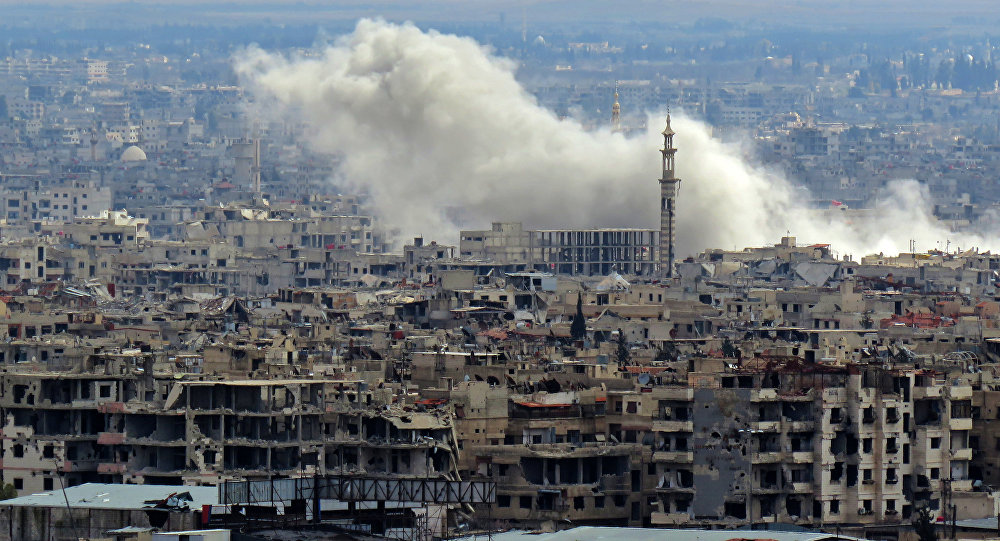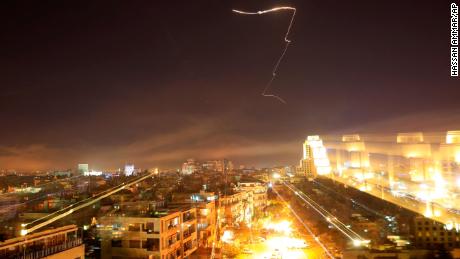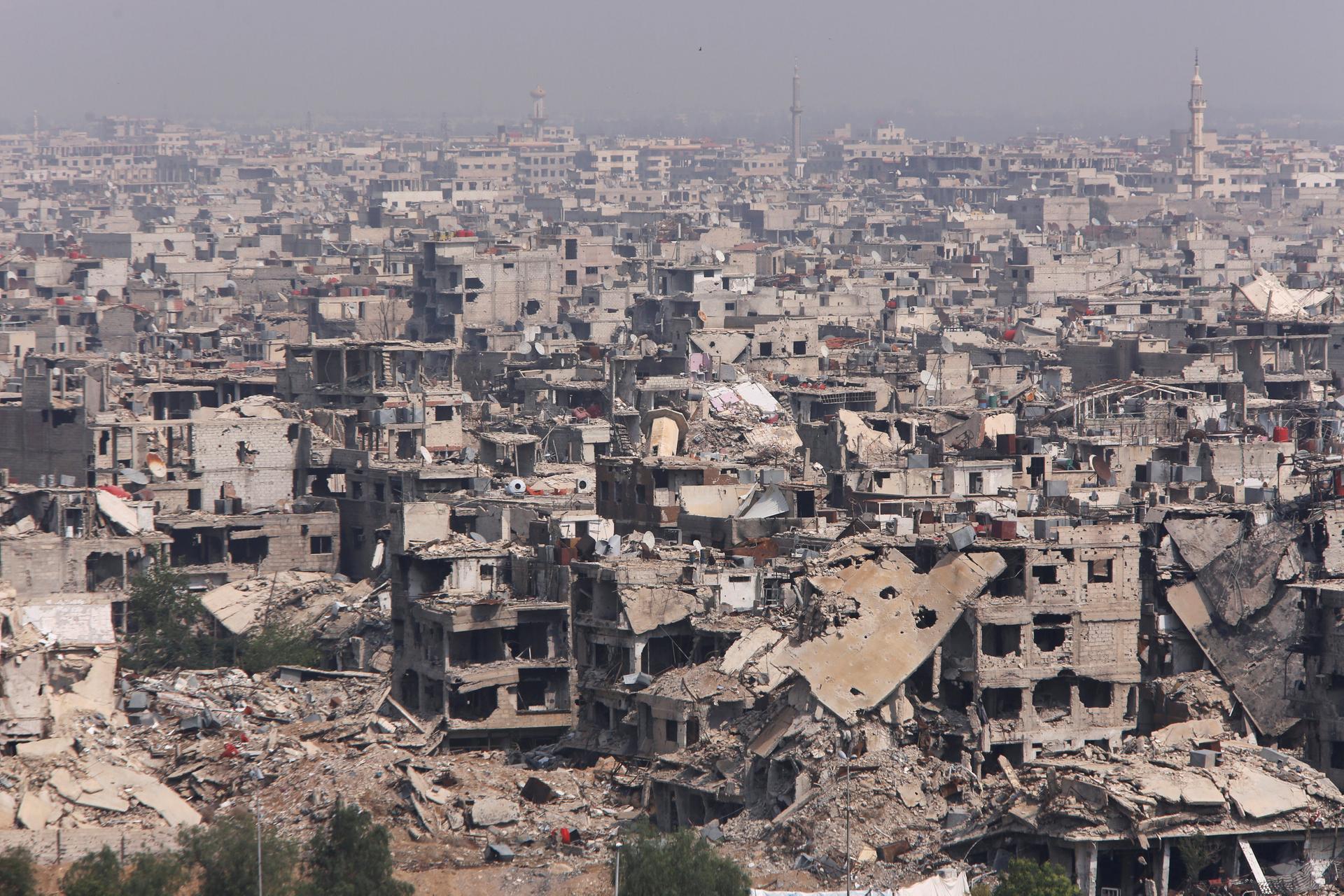
noun
- a city in and the capital of Syria, in the SW part: reputed to be the oldest continuously existing city in the world.
noun
- Official name Syrian Arab Republic. a republic in SW Asia at the E end of the Mediterranean. 71,227 sq. mi. (184,478 sq. km). Capital: Damascus.
- a territory mandated to France in 1922, including the present republics of Syria and Lebanon (Latakia and Jebel ed Druz were incorporated into Syria 1942): the French mandatory powers were nominally terminated as of January 1, 1944.
- an ancient country in W Asia, including the present Syria, Lebanon, Israel, and adjacent areas: a part of the Roman Empire 64 b.c.–a.d.
noun
- the capital of Syria, in the southwest: reputedly the oldest city in the world, having been inhabited continuously since before 2000 bc Pop: 2 317 000 (2005 est)Arabic names: Dimashq, Esh Sham (ɛʃ ʃæm)
noun
- a republic in W Asia, on the Mediterranean: ruled by the Ottoman Turks (1516–1918); made a French mandate in 1920; became independent in 1944; joined Egypt in the United Arab Republic (1958–61). Hafez al-Assad elected president in 1971 following a coup; after his death in 2000 Assad’s son Bashar took over the presidency; his rule was challenged (from 2012) by an uprising that led to a civil war. Official language: Arabic. Religion: Muslim majority. Currency: Syrian pound. Capital: Damascus. Pop: 22 457 336 (2013 est). Area: 185 180 sq km (71 498 sq miles)
- (formerly) the region between the Mediterranean, the Euphrates, the Taurus, and the Arabian Desert
ancient city in Syria, famous in medieval times for silk and steel, mid-13c., from Latin Damascus, from Greek Damaskos, from Semitic (cf. Hebrew Dammeseq, Arabic Dimashq), from a pre-Semitic name of unknown origin. Related: Damascene, from Latin Damascenus “of Damascus.”
from Latin Syria, from Greek Syria, from Syrioi “the Syrians,” a name originally given to the Assyrians (Herodotus vii.63), a shortened form of Assyrioi (see Assyria).
An ancient city in Syria (and still its capital today). The Apostle Paul, then an official called Saul, was on his way from Jerusalem (see also Jerusalem) to Damascus to arrest Christians (see also Christian). He underwent a dramatic conversion on the road, in which he fell from his horse, saw a dazzling light, and “heard a voice saying unto him, ‘Saul, Saul, why persecutest thou me? … I am Jesus, whom thou persecutest.’”
Capital of Syria and largest city in the country, located in southwestern Syria; the country’s administrative, financial, and communications center.
Republic in the Middle East, bordered by Turkey to the northwest, north, and northeast; Iraq to the east and south; Jordan to the south; and Israel, the Mediterranean Sea, and Lebanon to the west. Its capital and largest city is Damascus.
 Liberal Dictionary English Dictionary
Liberal Dictionary English Dictionary


